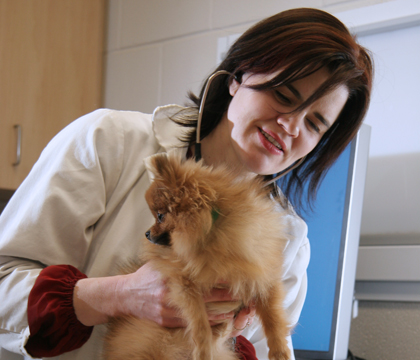
Preventing distemper
Vaccinations are nearly 100 per cent effective in prevention.
What is distemper?
Canine distemper affects dogs of all ages and is caused by a paramyxovirus that’s closely related to the measles virus.
Transmission
Treatment
There’s no specific treatment for the disease. Since there’s no specific treatment for the disease, veterinarians use supportive care to help prevent dehydration and secondary infections such as pneumonia. Even dogs that recover still require nursing care and must be isolated from other susceptible animals for up to 16 weeks.
Prevention
Dogs have no age-related immunity to distemper so it’s important that all animals — young and old — are vaccinated to prevent the disease. The vaccine most commonly used in veterinary clinics and shelters includes distemper virus in a combination shot with other diseases like parvovirus and adenovirus. Today’s vaccines are highly effective against distemper virus within three to five days of immunization.
Puppies should receive their first distemper vaccine between six and eight weeks of age, followed by booster shots every four weeks until they’re 16 weeks old.
If the vaccination status of puppies or their mother is unknown, it is advised to vaccinate early and often for canine distemper to decrease the chance of infection. Owners should keep young puppies away from dog parks, pet stores, or doggie day cares until after they have had their last set of shots.
Most veterinarians recommend vaccinating adult dogs against distemper virus every three years.

